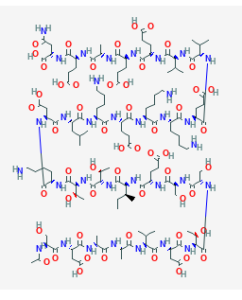Oxytocin, a natural protein hormone, plays important role in sexual reproduction, childbirth, bonding between mother and child during breast feeding and wound healing. New research suggests that it may boost cognitive performance, reduce cardiovascular risk, and offset the effects of diabetes.
Overview
Oxytocin is best thought of as one protein with two separate natural functions. First, it is a neuropeptide released by the hypothalamus to play important roles in bonding, sexual reproduction, and childbirth. Oxytocin is also a standard blood borne hormone, however, one that is produced by the placenta of pregnant women and that has effects on childbirth, milk production, and bonding with newborns. In men, a small amount of oxytocin is produced in the testes to play a role in mating behavior and pair bonding. Research on oxytocin has revealed it to play roles in:
- milk ejection/lactation,
- uterine contraction during childbirth,
- lowering blood pressure,
- changing neuron function,
- social bonding,
- fear and anxiety,
- mood, and
- wound healing.









Reviews
There are no reviews yet.